A dirty prison instead of the hoped-for security: a hunger strike to protest four refugees against the States in the refugee camp of Moria in Lesbos. Thousands of asylum seekers stuck there.
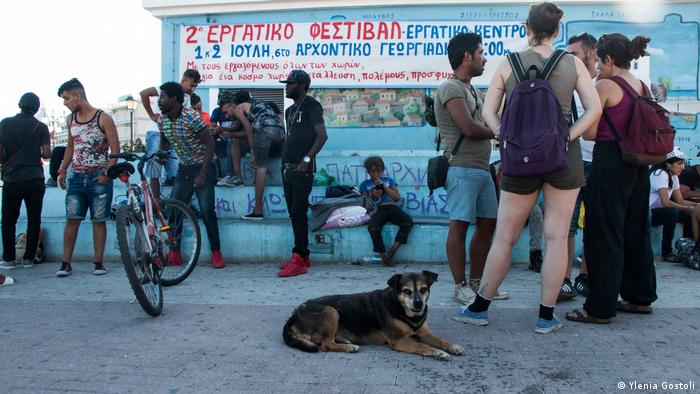
On the Central square in Mytilini activists to show their solidarity for the strikers, refugees
As the news reached him that his brother Amir, and two other asylum-seekers came to the end in the refugee camp of Moria in the hunger strike, started Arash Hampay his Protest. He went to the Central square of the harbour of Mytilene, the largest city on Lesbos. He settled there, in front of him a shield with the inscription: “refugees are not criminals.”
For nearly three weeks, the Iranian refugee camps, now there, with nothing to eat. His 24-hour vigil, and he stops only when he visited his brother in Moria or the police have to go on guard. International and Greek activists standing at his side, guarding the place, so he can sleep at night.
Arash came together with his brother, Amir Hampay eight months ago to Greece. His application for asylum was successful, was rejected by his brother. Amir appealed the decision, but for months nothing happened. Like thousands of others he awaits the processing of his asylum procedure. The island are not allowed to leave.
In the prison camp
Together with Arash Bahroz from the Iraq and Hussein Kozhin from Syria, Amir joined at the end of June in a hunger strike to protest against the appalling conditions in Moria. There, the three are imprisoned in the so-called “section B”, a prison Inside the camp. The Greek authorities had brought the refugees to move there, after their applications were rejected.
For Arash was out of the question that he would support his brother. “We both have the same history, have made the same work, and have come to Europe. Why it was rejected and I don’t?” asks Arash.
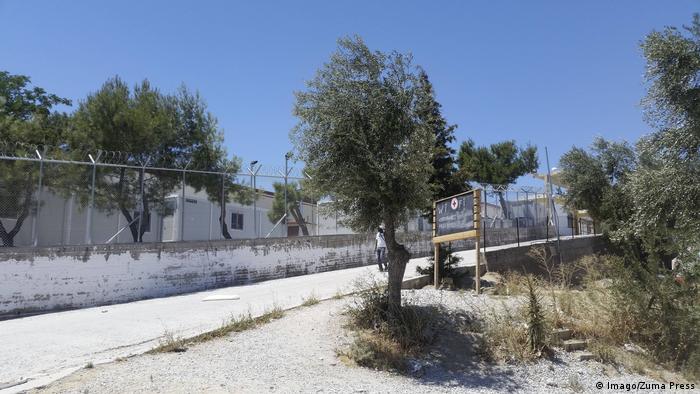
Refugee camp in sweltering summer heat: Moria on Lesvos
“I’m very Worried about his health,” he says. “Here’s a doctor comes by regularly and looks after me. But in the camp there is nobody.” Arash on the photos of the hunger strikers carefully on the stairs, where other refugees wait to be transported to Moria. Irregularly, the Bus to the camp, hidden from tourists and local residents driving far away on a mountain is located.
Stick The End Of Redistribution
Since March of 2016, the EU-Turkey agreement is in force. At the same time, the Balkans was closed in Route. Since then, Greek authorities need to hold down the newly arriving refugees; an estimated 14,000 people are currently waiting for the Islands of Chios, Lesvos and Samos. The UNHCR believed, however, that the number is lower. The refugees are not allowed to leave the Islands before, you have to get the necessary papers issued. This, however, can take months. Some refugees report that you could buy papers for 700 to 1000 Euro illegal.
Some refugees have been living for over a year in crowded, dirty Camps like the one in Moria. And although since the conclusion of the EU-Turkey agreement, far less people come to Greece: the number of newly arriving refugees on Lesvos is still higher than the number of people leaving the island.
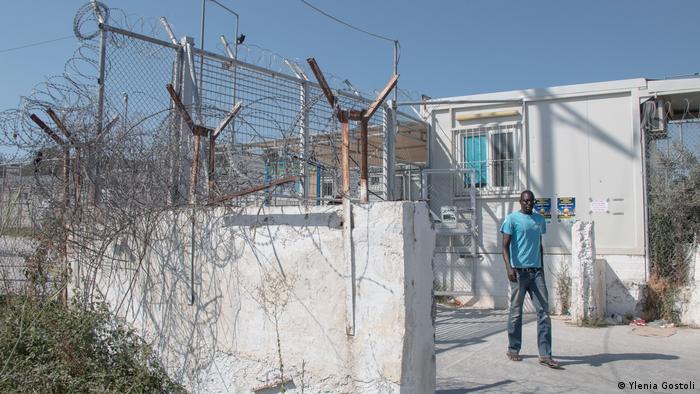
Life in the dark: many of the refugees are stranded on Lesvos
In spite of the adopted redistribution of refugees in different EU countries, the process is faltering, with some countries refusing to take in refugees. The Greek authorities are unable to cope with the processing of asylum applications. In addition, are louder voices calling for the repatriation of refugees in Turkey is in question. Turkey is not a safe country.
After Amir Hampays application for asylum was denied, he went into the appeal. But then the police appeared one Morning in April, in Moria, brought him to the Harbor and put him on a ship. His deportation was prevented at the last Minute by an urgent application before the European court of justice. Since then, he’s stuck in Moria.
Politically persecuted
In Iran, Arash was an activist, a well-known human rights photographer and filmmaker. He led the organization Hamyaran-E-Mehrandish, which campaigns for the rights of women, children and refugees. When Arash was still a child, murdered his father by Iranian paramilitaries. A few years later the same fate met one of his older brothers. Because of his work Arash was arrested, he was abused, him teeth were hit.
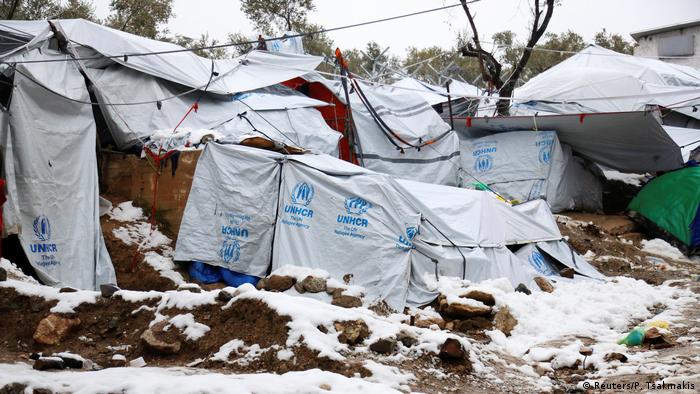
Moria last Winter: The tents offer little protection from the cold
In January of 2016, Arash decided to flee from his home. The authorities accused him of illegal political activity, several years of imprisonment threatened. First, he took refuge in Turkey. As also there the police was aware of him, he fled further in search of a safe environment. What he found were overcrowded, dirty camps, surrounded by barbed wire. Refugees lived in tents, which were not insulated for the temperatures in the Winter are sufficient. At least four deaths.
“We had no electricity, no heating element. A mother and her daughter died, because her tent, the fire had caught,” says Arash. “The blood was on the floor, and was placed in a new tent in the same place.”
Self-Injury, Depression
After five months in Moria Arash tried to take his own life. A total of seven months he spent in the camp, before he could move into an apartment in Mytilini. The organization Human Rights Watch found in a recent study, many of the refugees conditions on the Greek Islands of fear and suffering from Depression. Many injured themselves.
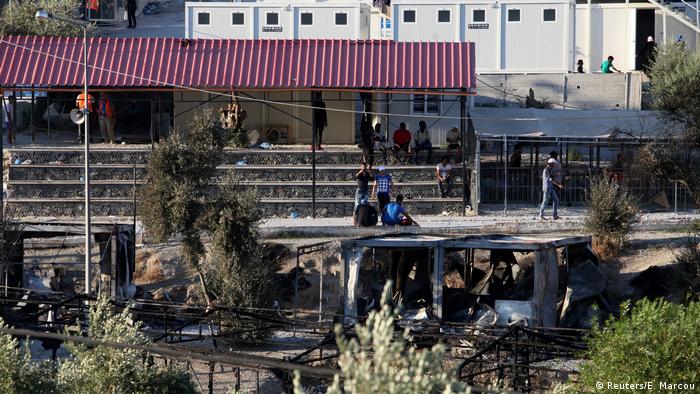
Burned-out Container after a fire in the refugee camp of Moria on may 10. July
Last week there was riots in Moria, as the office container of the EASO, the European asylum support office requests (EASO), were set on fire. According to the UNHCR, as many as in September 2016 arrived in June, a total of 940 people from Turkey to Lesvos. 179 people were brought to the Greek mainland. The Situation on Lesvos is getting worse. In Moria about 2,700 people, far more life provide, than the capacity.
In the cafes around Moria waiting to be refugees and are looking for Ways to leave the island. Others take the Bus to Mytilini. Who runs a daily Bus there and back, has used up the monthly allowance of 90 Euro quickly. Then there are those who are very long on the island: you see the impassive, remote and sit out your time. “We are not allowed to be free here, and we must not go back,” says Arash.
Info-Migrants – All Rights Reserved
Info migrants is not responsible for the content of external websites.
Source: InfoMigrants2017